June marks the start of Pride month across our country. From small towns to large cities, the LGBTQIA+ community and their friends and families will come together to celebrate identity, organize for empowerment, and remember those who have gone before us as extraordinary saints of our movement. During the month of June, ELM’s blog will reflect stories of Pride – the feeling, the event, the movement.
This week, ELM’s staff reflect on the theme: “Serving with Pride!”
Rev. Asher O’Callaghan, Program Director
10 years ago,
I never would have dreamed,
not even in my wildest of nightmares,
that I would end up here.
Happy, healthy, proud.
10 years ago,
I thought I was condemned to be
unhappy, unhealthy, ashamed.
I thought that love was beyond me.
I thought that God’s love was contingent
on me renouncing love,
on me never being me.
Life is surprising.
I didn’t know God as well as I thought.
I didn’t know myself as well I thought.
Being dead wrong saved my life.
Love is how we know God.
So when I cut myself off from love,
I cut myself off from God.
We can’t know God without love.
Because love is what God does.
It’s who God is.
Love makes all things new,
Love gave me a new name, a new identity, a new community.
Love made me transgender and bisexual.
Love gives us all a new calling.
It gives us the fire, the energy, to do things we never thought we could.
You can’t receive love without wanting to go share it.
Love has made me proud.
Proud of what God is doing.
Proud of who I am becoming,
The unimaginable person I’ll be in another 10 years.
Proud of the community surrounding me,
that loves people into being.
Proud of those who went before me,
the shoulders I’m standing on.
Proud of this work of love that God is still calling us to.
I am PROUD of what God’s love has done.
It is indeed right, our duty and our joy,
that we should at all times and in all places
flaunt it
Proclaim it
on the streets in Pride Parades
and in the sanctuary every Sunday.
Hannah Dorn, Program and Administrative Assistant
Though I grew up in an ELCA church regularly attending services, I didn’t always feel a connection to my faith. It was like there was some kind of “Christianity Box” that I didn’t quite fit into. A square peg and a round hole. I believed I couldn’t be my true self within the church. It drove me away from my church, clouded my relationship with God, and ultimately caused me to feel unworthy of Christ’s love.
 In January of 2015, I came across a booth in my college’s student center for a Christian Sorority. Though this was most certainly not my typical scene, I realized that God was presenting me with an opportunity for change and I joined up. It was within this organization that I first realized how different one Christian could be from another and that this was certainly not a bad thing.
In January of 2015, I came across a booth in my college’s student center for a Christian Sorority. Though this was most certainly not my typical scene, I realized that God was presenting me with an opportunity for change and I joined up. It was within this organization that I first realized how different one Christian could be from another and that this was certainly not a bad thing.
It was here that I realized that my uniqueness was exactly what made me so perfectly equipped to share God’s love and that the sharing of His love and light is our greatest duty to God. It was here that I realized I was most definitely worthy of Christ’s love and I needed to spread that sense of worth to those around me.
The light and the love and the image of God are all boundaryless. Thus, we who are born into that light, cherished in that love, and created in that image cannot be placed in a single box.
To work for an organization that lifts up the uniqueness of God’s children and recognizes difference as strength rather than weakness brings me great pride and joy. I am so grateful to be given the opportunity to further understand the trials that face God’s children, especially within the LGBTQIA+ community. Through deeper understanding, we strengthen our ability to love in the way God loves every one of us no matter our shape: circle, square, star, rainbow.
Rev. Amanda Nelson, Executive Director
I didn’t go to seminary to be a gay pastor – in fact, I didn’t even mention my orientation in my entrance paperwork for the ELCA candidacy process. I didn’t yet see a connection between my identity as a queer woman and my calling to serve the church.
But when it came time for my approval essay, I couldn’t separate my faith, my calling, and my queer identity.
I didn’t intentionally pick to do my field education at First United Lutheran Church in San Francisco – one of the congregations that defied ELCA policy in 1990 by calling and ordaining the Rev. Jeff Johnson. I simply wanted to have a ministry site in a context unfamiliar to me (a suburbanite) and this site was in the city.
But in their midst, and in the context of the Bay Area, I was introduced to a history that had shaped my present and was shaping my future.
The Holy Spirit is sneaky that way: pushing us, engaging us, calling us into a holy narrative of liberating love and divine pride – and, sometimes, it takes a while for us to put the pieces together to see the bigger picture.
Today, I actually don’t mind being a gay pastor (though, I know this is not every LGBTQIA+ person’s call). And, I’m thrilled to be called to a ministry that not only celebrates my identity but sees it as an asset to the work that I do.
The ELM Board has never asked me to “tone down” my queer identity. I’ve never been asked by an ELM donor not to tell them about my fiancee, Tasha, because “they’re okay with LGBTQIA+ people as long as they don’t have to see it.” My colleagues encourage me to wear rainbow buttons and stoles at events so that I can be identified as an LGBTQIA+ leader in our church. I’m invited to preach on “gay things” in congregations across the country all the time.
I recognize that I serve a unique call, but I believe this liberation is possible in our congregations and in our Church. This glimpse into the kin-dom inspires me daily to do the work that I do – and I do it with such deep pride.
Happy Pride, beloveds!

The staff of Extraordinary Lutheran Ministries work to support ELM’s programs and to spread the joy of LGBTQIA+ leadership to the Lutheran church and the wider world. ELM’s staff span the country – Asher in Denver, CO, Hannah in Chicago, IL, and Amanda in Portland, ME – and, take great pride in the work they do together.

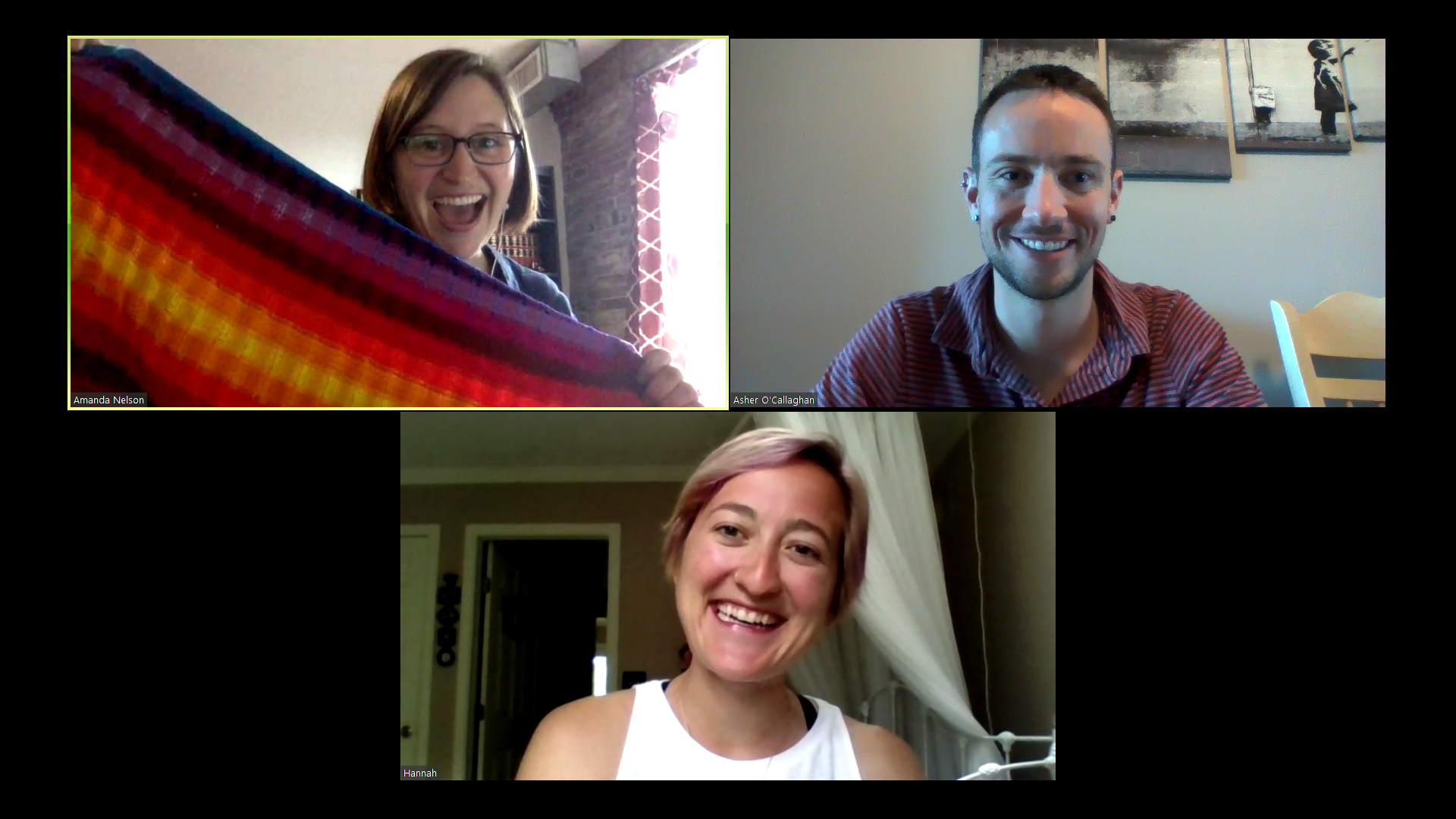
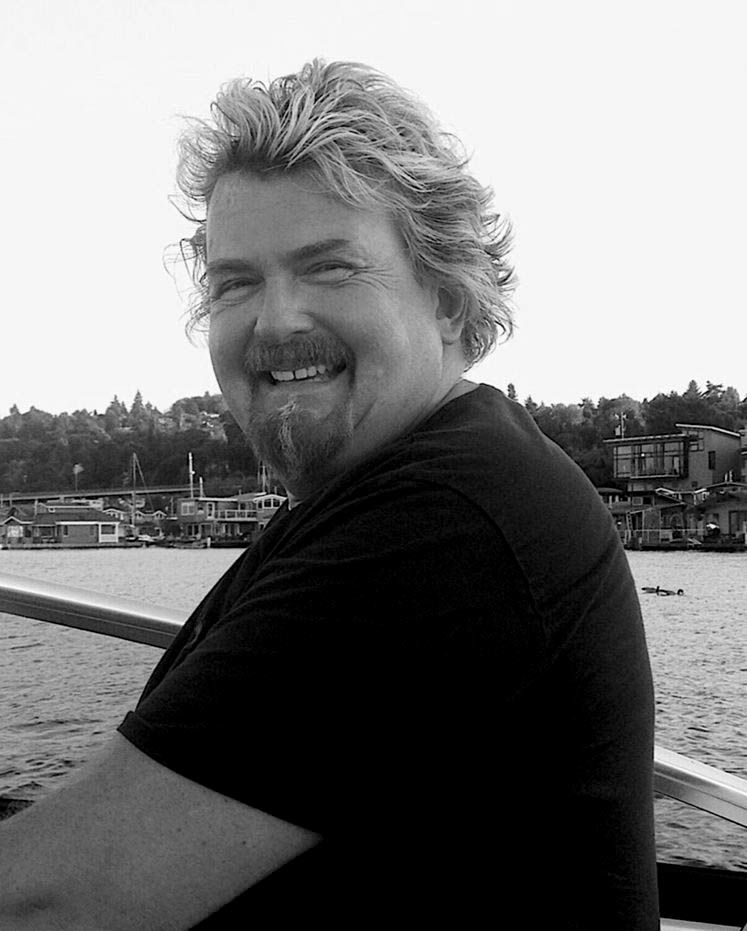
 John Eric Rolfstad.
John Eric Rolfstad.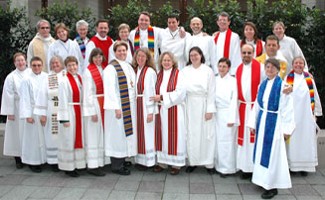

 Sharon Stalkfleet (she/her/hers) served as a registered nurse for 16 years prior to receiving a Master’s of Divinity from Lutheran School of Theology at Chicago, She was ordained extra ordenim by four congregations in Oakland and Alameda, CA in 2002. In 2010, she was received into the ELCA along with 7 other LGBTQ pastors in San Francisco Bay Area. She has served as pastor to Lutheran Ministry to Nursing Homes, as a hospice chaplain and most recently serves as an Intentional Interim Pastor. She is a member of the Candidacy Committee and Sanctuary Task Force. She lives with her dog Greta in Berkeley and is very partial to her two grandchildren.
Sharon Stalkfleet (she/her/hers) served as a registered nurse for 16 years prior to receiving a Master’s of Divinity from Lutheran School of Theology at Chicago, She was ordained extra ordenim by four congregations in Oakland and Alameda, CA in 2002. In 2010, she was received into the ELCA along with 7 other LGBTQ pastors in San Francisco Bay Area. She has served as pastor to Lutheran Ministry to Nursing Homes, as a hospice chaplain and most recently serves as an Intentional Interim Pastor. She is a member of the Candidacy Committee and Sanctuary Task Force. She lives with her dog Greta in Berkeley and is very partial to her two grandchildren.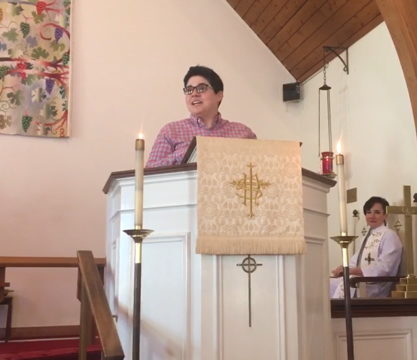
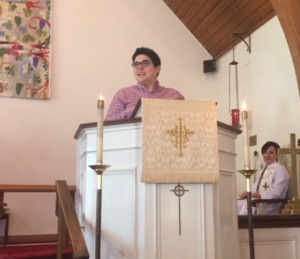


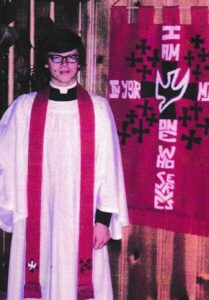
 Comparatively speaking, my time back in professional ministry has been really short. It comes out to just over 2 years and 11 months. It sounds more impressive in days. That’s a total of 1074. Renewed ministry flowing in my veins every single one of them. Soli Deo gloria – with a little help from my friends.
Comparatively speaking, my time back in professional ministry has been really short. It comes out to just over 2 years and 11 months. It sounds more impressive in days. That’s a total of 1074. Renewed ministry flowing in my veins every single one of them. Soli Deo gloria – with a little help from my friends.
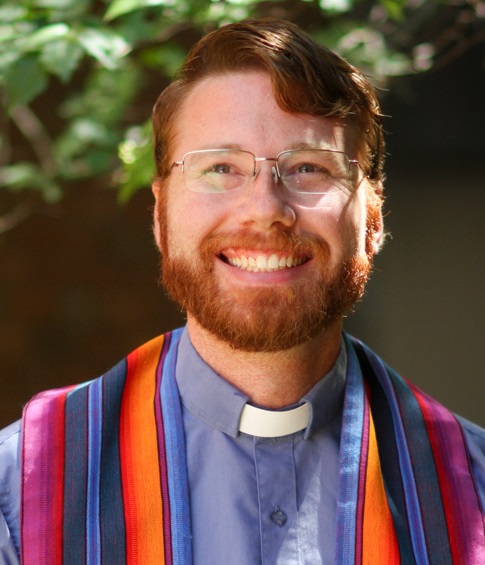

 At one end is “the closet” and the other end is “coming out”. I ask them to try to come up with as many different reasons as they can about why someone would stay in the closet and we would write them on the walls of the maze.
At one end is “the closet” and the other end is “coming out”. I ask them to try to come up with as many different reasons as they can about why someone would stay in the closet and we would write them on the walls of the maze.
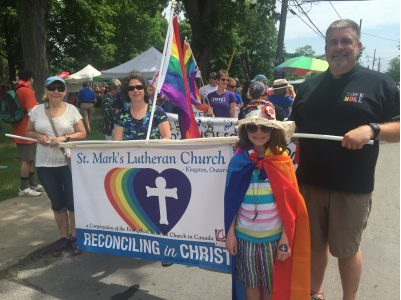

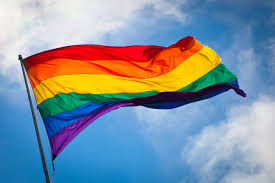

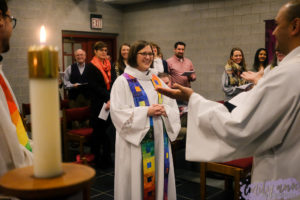

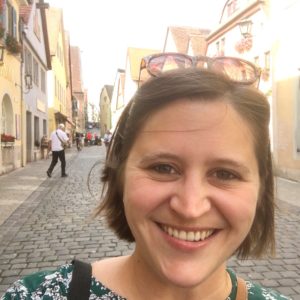

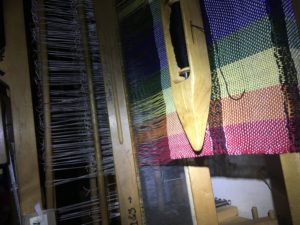
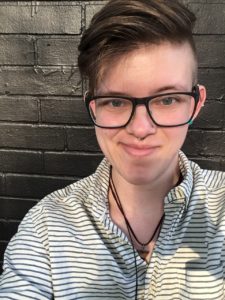 Reed Fowler (they/them/theirs) is a seminarian at the Lutheran School of Theology at Chicago and a candidate for ordained ministry in the Evangelical Lutheran Church in America. They are invested in interfaith collaboration, holding space for witness and tenderness, and centering alternative and artistic expressions of the sacred. They spend downtime knitting, queering faith + domesticity, gardening, and snuggling with their ever-increasing menagerie.
Reed Fowler (they/them/theirs) is a seminarian at the Lutheran School of Theology at Chicago and a candidate for ordained ministry in the Evangelical Lutheran Church in America. They are invested in interfaith collaboration, holding space for witness and tenderness, and centering alternative and artistic expressions of the sacred. They spend downtime knitting, queering faith + domesticity, gardening, and snuggling with their ever-increasing menagerie.